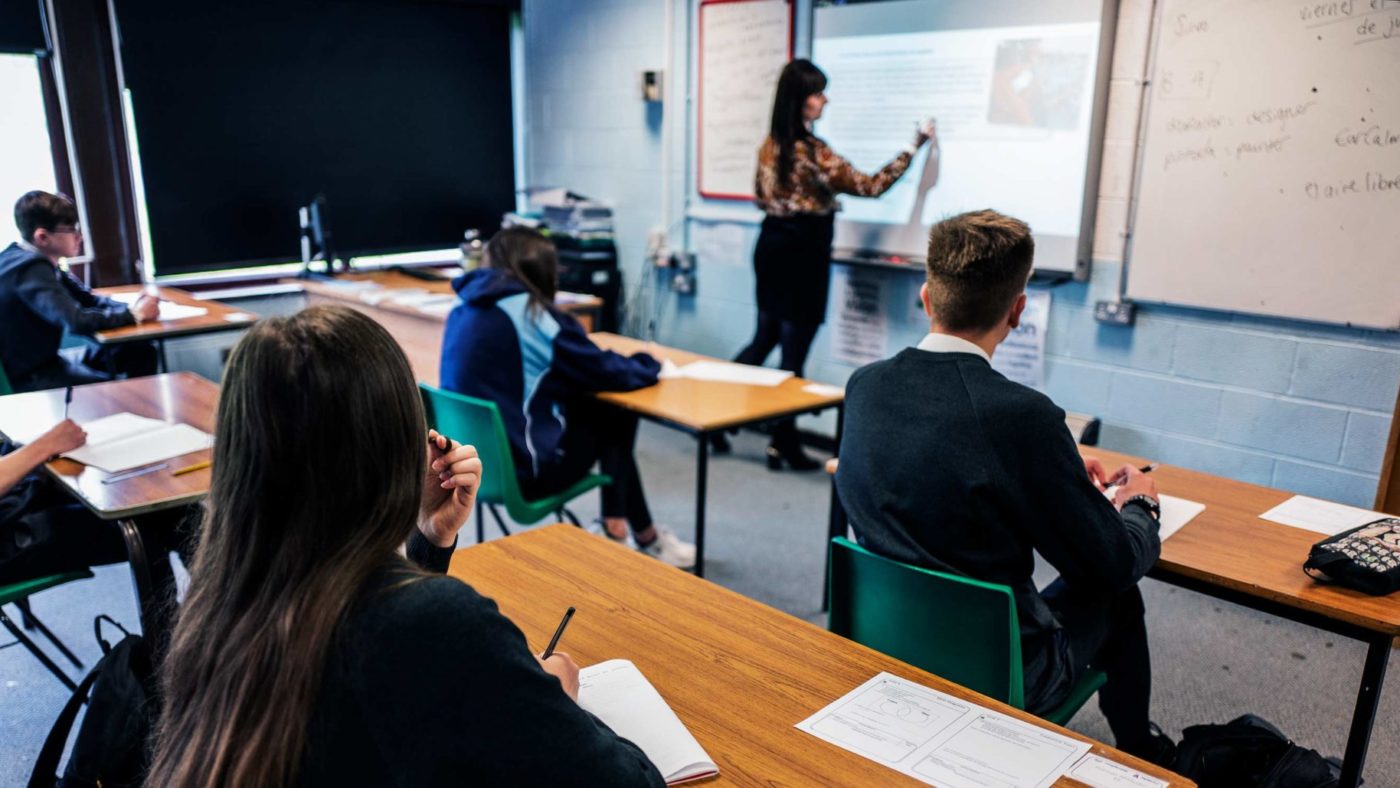Imagine that to escape the torment of the pandemic, an adventurer decided to trek through the Amazon and discovered the Fountain of Youth. You would surely expect a bitter fight over who should be able to drink from it, until its properties could be studied and replicated. Back in the grim darkness of January 2021, we are seeing the start of an ill-informed, misguided and politicised clash over who should have access to Covid vaccines first.
Some Tory MPs are reportedly toying with the idea of tearing up the advice of the Joint Committee on Vaccination and Immunisation recommendations and moving teachers up the priority list. On the face of it, if teachers were vaccinated, surely schools would be able to reopen and children would be back studying properly, in person.
Though undoubtedly well-intentioned, we have to set this proposal off against a limited supply of vaccines. Vaccinating one group ahead of another will obviously mean vaccines are being taken from others who need them. If school staff are prioritised, say, on par with frontline healthcare workers, the NHS would be vaccinating the UK’s 500,000 teachers ahead of 75-year-olds.
This might make sense if the mortality risk was the same for all groups, especially if the Education Secretary were forcing teachers to work in person. But the risk is manifestly not the same for all groups: the chance of dying from the virus is concentrated among the elderly and sick. British teachers are some of the youngest in the OECD, and nearly one in three primary school teachers are under 30.
Vaccinating teachers will not address the issue of why schools are closed. In indoor, unventilated spaces, where 30 children are not wearing masks, the virus spreads rapidly. Although Covid thankfully has minor impacts on the vast majority of children, putting 30 children in a classroom is still effectively mixing 30 households. The child-to-child spread is where the damage is done, with children infecting their parents who then go on to infect other adults, which means closing schools is one of the best ways to slow down transmission. The issue is not child-to-teacher virus transmission, and vaccinating teachers will not prevent intensive care units (ICUs) filling up with Covid cases.
The Government has now decided to impose lockdowns three times when it has been clear that hospitals are near or at breaking point. Even with a nationwide lockdown currently in force, some hospitals are already overwhelmed and have had to go into emergency measures. In other words, doctors are palliating patients much younger than they normally would.
Under current plans, if half a million vaccines were allotted to teachers, this would put great demands on the target Boris Johnson has set for vaccinating all of the most at-risk people by February. The NHS needs to distribute 14 million vaccines at a minimum to prevent deaths in the most vulnerable populations, but this will not eliminate all deaths. There are over 7 million people aged 60-70 who are not included in the February target, and with the virus already mutated, this age group is at serious risk. A 1% infection fatality ratio in this group would leave 70,000 people dead, sending the total number of deaths well above 150,000.
Of course, a trade-off between the education of millions, and the lives of thousands of people is an extraordinarily tough one. Protecting the latter, and ensuring the former can start as quickly as possible should be the overwhelming priority.
Underlying all of this is the fact that the Government’s current aim of vaccinating 2 million people a week is not ambitious enough and is not being taken seriously enough. That much was evident when Matt Hancock, visited a GP surgery yesterday to celebrate the vaccine rollout, only to find the surgery had no vaccines, presumably due to logistical issues. When supply starts to pick up over the next few months serious questions will be asked as to why jabs are not being put in arms more quickly. Not only will Astrazeneca’s supply of the Oxford vaccine increase, but Pfizer is due to ramp up deliveries and more vaccines, such as Novavax, are also likely to be approved.
If the NHS cannot deliver its current vaccine supplies to the most vulnerable, the Government should not be using up resources to vaccinate favoured groups. It should instead put all of its energy into solving distribution problems and getting as many people vaccinated as possible. We cannot rest on our laurels and compare ourselves to lacklustre efforts in the EU. Rather, we should look to replicate the best practice in the world. Now Britain has left the EU, this is an opportunity to give the country some self belief that it can solve complex problems, and not settle for ‘just about good enough’.
As a recent Adam Smith Institute report sets out, and as I have written about here, current logistical bottlenecks are not beyond the wit of man. There will be problems which can be solved by money, effort and ambition. Just as growing the economy means there are more gains to be shared around, the faster we vaccinate everyone, the faster teachers will be vaccinated.
Click here to subscribe to our daily briefing – the best pieces from CapX and across the web.
CapX depends on the generosity of its readers. If you value what we do, please consider making a donation.


